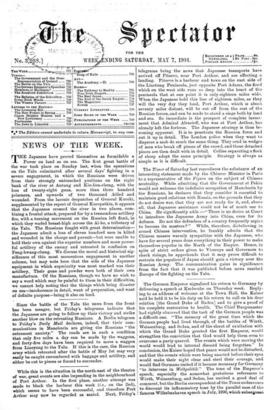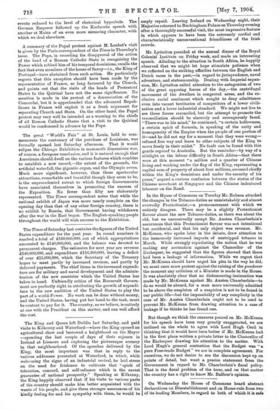The German Emperor signalised his return to Germany by delivering
a speech at Karlsruhe on Thursday week. Reply- ing to an address of welcome at the Town Hall, the Kaiser said he held it to be his duty on his return to call on his dear relation [the Grand Duke of Baden] and to give a proof of his complete restoration to health. The Chief Burgomaster had rightly olainved that the task of the German people was a difficult one. " The memory of the great time which the German people had lived through, of the battles of Worth, Weissenbarg, and Sedan, and of the shout of exultation with which the Grand Duke greeted the first Emperor, would strengthen the conviction that God would help them even to overcome a party quarrel. The events which were moving the world would lead to internal discord being forgotten." In conclusion, the Kaiser hoped that peace would not be disturbed, and that the events which were being enacted before their eyes would make their sight clear and steel their courage, and would find Germans united if it became necessary for Germany "to ihtervene in Wellpolitik." The tone of the Emperor's speech, especially the somewhat gratuitous references to Worth, Weissenburg, and Sedan, has excited a good deal of comment, but the Berlin correspondent of the Times endeavours to discount its inflammatory tone by the parallel case of the 'famous Wilhelmshaven speech in July, 1900, which subsegneat











































 Previous page
Previous page